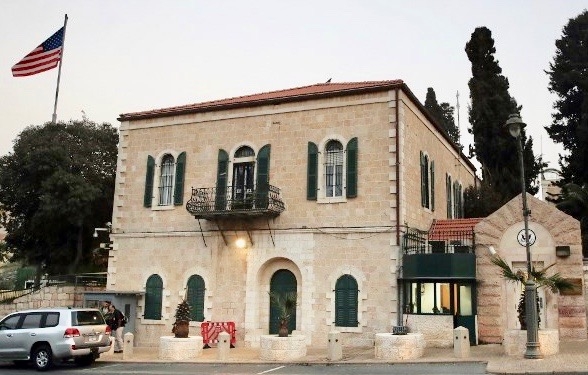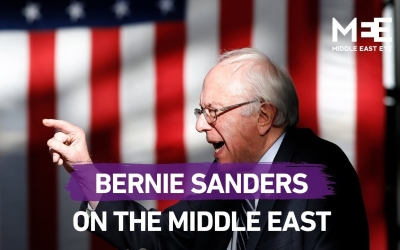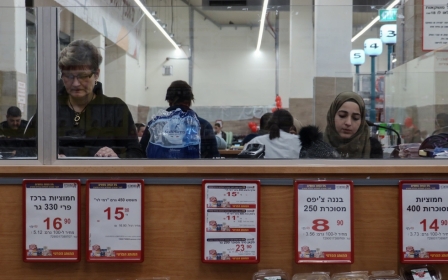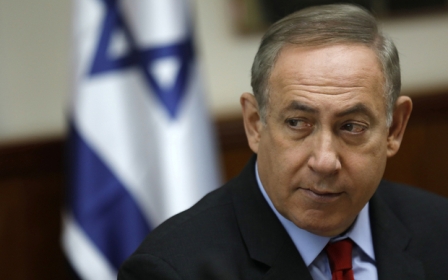US merges Palestinian mission with Israeli embassy in West Jerusalem

The United States' chief diplomatic mission to Palestine in West Jerusalem merged on Monday with its Israeli embassy, a decision that forces Palestinians to seek consular services from a department inside a controversial facility.
On Monday afternoon, the Stars and Stripes was lowered at the US general consulate that has served as a de-facto embassy to the Palestinians since the Oslo Accords of 1993.
It is located in a building hundreds of metres away from the walls of the Old City and Jaffa gate.
The US has had a permanent diplomatic presence in the city since 1857, and the general consulate's building has been the home of the US consul-general since 1912.
In October, Secretary of State Mike Pompeo said a decision had been made to merge the general consulate and Israeli embassy, to form a single diplomatic mission in Jerusalem.
Stay informed with MEE's newsletters
Sign up to get the latest alerts, insights and analysis, starting with Turkey Unpacked
Washington moved its embassy from Tel Aviv in May, recognising Jerusalem as Israel's capital in the process, in a move widely condemned as detrimental to the peace process.
There will be complete continuity of US diplomatic activity and consular services during and after the merger
- State Department
The State Department said on Monday in a statement that "there will be complete continuity of US diplomatic activity and consular services during and after the merger".
A new Palestinian Affairs Unit (PAU) is going to be established in the embassy to deal with Palestinians' consular affairs concerning the occupied West Bank, Gaza Strip and East Jerusalem, the statement added.
The State Department said that its move "does not signal a change of US policy on Jerusalem, the West Bank or the Gaza Strip".
Saeb Erekat, Palestine Liberation Organisation secretary-general, called the closure of the general consulate as "the last nail in the coffin of the US administration's role in peacemaking".
Senior Palestinian official Hanan Ashrawi said: "The Trump administration is intent on leaving no room for doubt about its hostility towards the Palestinian people and their inalienable rights as well as its abject disregard for international law and its obligations under the law".
US Donald Trump's decision to move his country's embassy to Jerusalem caused outrage amongst Palestinians and their supporters.
The embassy's opening ceremony was met by large protests in the Gaza Strip, in which more than 50 Palestinians were killed by Israeli fire in what the United Nations has said may amount to a war crime.
In response to the American move, the Palestinian Authority (PA) froze diplomatic ties with Washington.
The PA has refused to engage with the Trump administration as it attempts to thrash out an agreement between the Israelis and the Palestinians, dubbed by the US as "the deal of the century".
Palestinians say unilateral moves such as with the embassy show Washington is heavily favoured towards Israel and cannot be considered an honest broker.
The Trump administration has shot back by shutting down the PLO's office in Washington and cutting more than $500m in Palestinian aid in a bid to force PA leaders to go back to the negotiation table.
The merger of the general consulate with the embassy means that Washington's ties with the Palestinians will now fall under the authority of US Ambassador to Israel David Friedman.
Friedman is a notorious figure among Palestinians, due to his staunch support of Israel's illegal settler movement in East Jerusalem and the West Bank, which Israel has occupied since 1967.
Middle East Eye delivers independent and unrivalled coverage and analysis of the Middle East, North Africa and beyond. To learn more about republishing this content and the associated fees, please fill out this form. More about MEE can be found here.





